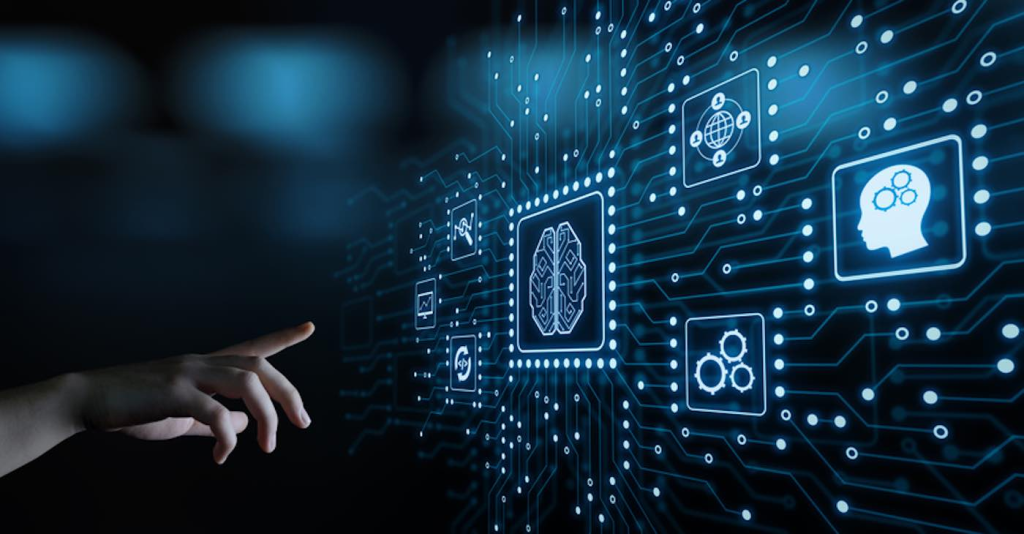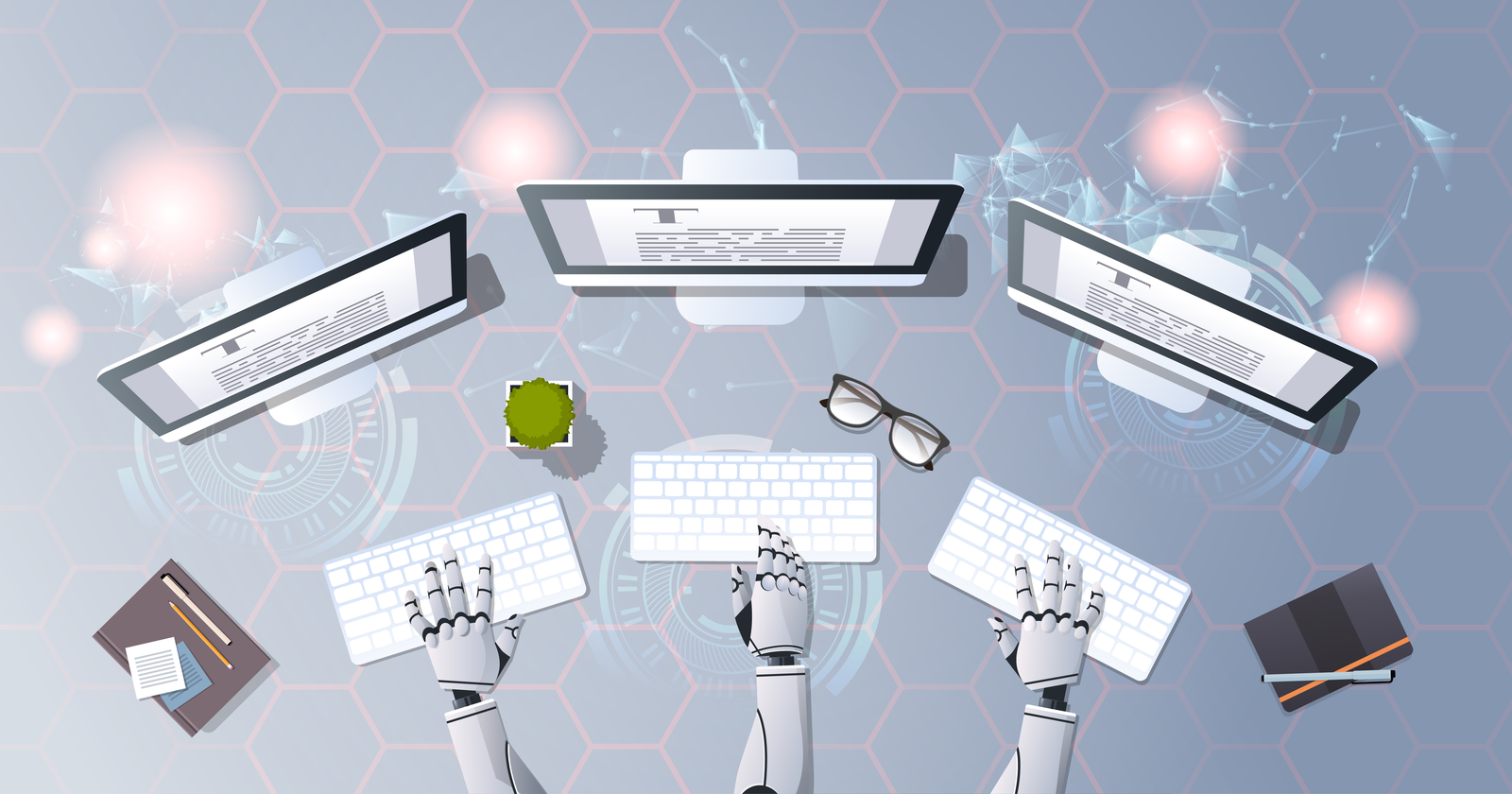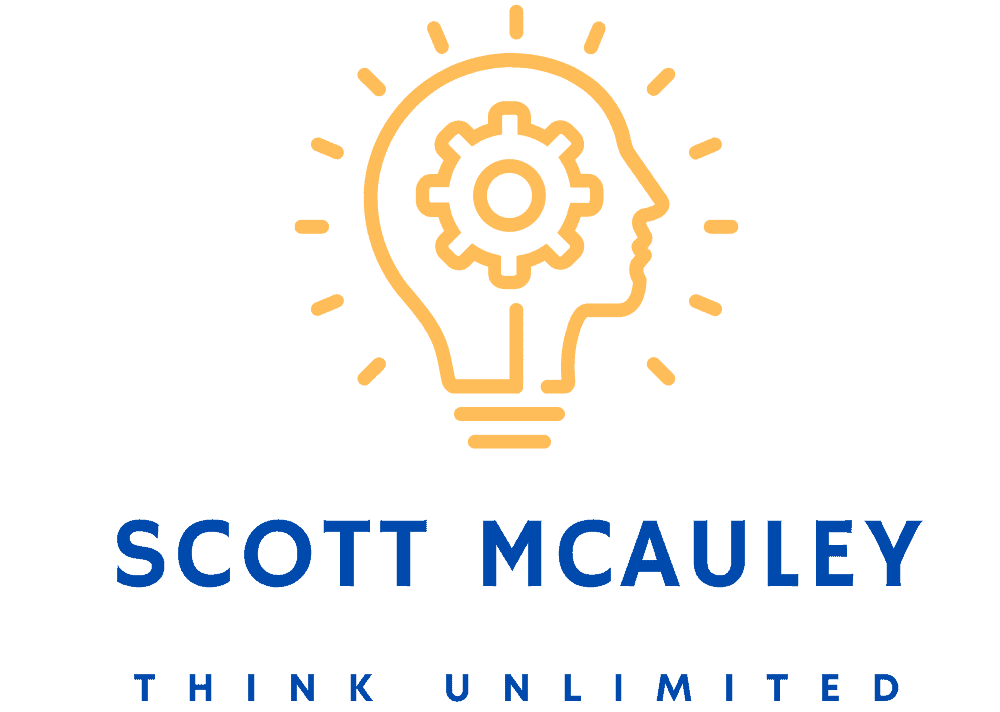Who Owns AI-generated Content? It’s a question causing quite a stir in legal and tech circles alike.
We live in an age where artificial intelligence is not just assisting but creating content. From articles to poems, you name it, an AI bot can write it.
But when these lines of code start penning words alone, who gets to claim ownership AI content? The developers who coded the algorithm or perhaps the user commanding its actions?
The issue of Who Owns content written by AI, my friends, opens Pandora’s box of ethical dilemmas and copyright conundrums.
Understanding AI Content Ownership

The advent of Artificial Intelligence (AI) in content creation has sparked a flurry of questions surrounding copyright ownership. According to the US Copyright Office, if you own an AI system, you hold the rights for any content it churns out. What implications does this ruling have for us?
The role of AI in generating written content
Artificial intelligence has played a crucial part in crafting written material on the entire internet for the past few months. From a blog post and reviews to news articles or even novels – there’s likely an AI tool or generative AI platform that can produce such forms.
Much computer science goes on behind these tools: they learn from massive amounts of data from original works available on public domains or licensed databases, recognize patterns within this information, and apply these insights to create AI-written text that seems as good as human-authored texts.
This capability raises critical questions about intellectual property rights because while traditionally authored works are safeguarded under copyright laws, machine-generated outputs step into unexplored territory.
Decoding the US Copyright Office’s ruling on AI-produced content
To unravel who ultimately owns content generated by artificial intelligence systems, we must look at rulings made by legal authorities like the US Copyright Office. They believe only human work can be copyrighted since this output is sufficiently creative enough to warrant legal protection.
This means when the human author uses an AI tool but provides substantial input during the creation process, he would retain ownership over the resulting piece. However, if one solely relies upon automated processes provided through platforms, the owner becomes an eligible claimant due to copyrights associated with generated materials.
An interesting case study is Microsoft’s patent filed last year seeking exclusive rights over outputs created using specific versions of their chatbots. While still awaiting approval, the time-writing move sparked debate around the feasibility of enforcing claims given blurred lines between man-made machine-driven creations.
Navigating the murky waters of AI content ownership, it’s clear that if you’re steering the ship (owning an AI system), you hoist the flag for its output. Yet, with copyright laws traditionally favoring human creativity, we’re sailing into uncharted territory when machines take over.
Implications of Owning an AI System

The emergence of AI has caused a dramatic change in the content production landscape. Today’s world sees AI tools creating original works at breakneck speed. But who ultimately owns content generated by these advanced systems? Current regulations point towards one answer: The owner.
As we move into this new era, we ask whether we must address AI-generated content ownership’s ethical dilemmas and legal challenges or regulate AI content generation.
Ethical considerations associated with owning copyrighted materials produced by an AI
If you’re familiar with intellectual property rights or have dabbled in copyright law, you’ll know it can be tricky territory. Now imagine throwing artificial intelligence into the mix. It certainly adds another layer to consider when determining ownership for ai-generated work.
In light of this information, some argue whether it is ethically correct for humans or companies to claim copyright on digital content churned out by their owned AI platforms. These are not just hypothetical debates; they hold profound implications regarding monopolization risks if large corporations gain exclusive control over vast amounts of data created through their proprietary AIs.
Legal challenges related to enforcing these copyrights
Beyond ethics lie potential hurdles within our existing legal frameworks while addressing issues around copyrighted material from generative AI technologies. For instance, US Copyright Office has stated only creations demonstrating “creative powers minda€ qualify for protection implying significant human involvement is required.
Simply owning an ai system does not necessarily grant automatic entitlements unless the AI programs direct influence is exerted upon outputs via the human intellect.
This raises questions about what constitutes ‘enough’ contribution, particularly scenarios involving interactive dynamics between user inputs & machine responses shaping outcomes such as those seen on social media using Ai chatbots. Furthermore, complexities multiply considering the global scope of internet operations necessitating international consensus enforcement measures against possible instances of infringement.
- Navigating Legal Waters: Determining sufficient levels of human involvement during the creation process poses a challenge given diverse interpretations across jurisdictions worldwide, each having distinct rules concerning Intellectual Property Rights.
- Finding Global Consensus: Enforcing penalties violations, especially anonymity, often provided online platforms making culprits complex trace back presents additional difficulty.
- Leveraging blockchain technologies establishing transparent, immutable records proving precise lineage data used trained models, facilitating the more accessible resolution of disputes arising contested claims.
- Mandating open-source practices in specific areas and encouraging broader participation mitigates the risk of concentrated power few hands.
Every passing day is witnessing rapid progress in Artificial Intelligence and Machine Learning, consequently increasing reliance on their various sectors, including but limited entertainment industry, journalism, medical research, etc. As we continue to integrate everyday lives, crucial to keep abreast of the evolving landscape surrounding respective regulatory environments to ensure compliance and avoid unnecessary future complications.
AI’s rapid evolution is shaking up content creation, but it also opens a can of worms regarding copyright ownership. While current rules lean towards the AI owner, this stirs ethical and legal debates. Is it right for humans or firms to claim copyrights on AI-generated content? And what amount of human involvement qualifies for protection? Navigating these choppy waters will require global consensus and innovative solutions like blockchain technology.
Transferring Copyrights from Owner to User

The intellectual property rights landscape currently dictates that the owner of an AI system has exclusive copyright over content generated by it. But can these owners transfer their copyrights? Let’s look into potential situations where this type of copyright transfer could occur and discuss the implications for everyone involved.
Scenarios Enabling Transfer of Copyright from Owner to User
A typical scenario is when a business or individual sells or leases an AI tool or platform. The buyer may want ownership rights as part of the deal. This would require careful negotiation and legal agreements.
In another case, businesses using generative AI platforms to create digital content may wish to claim ownership over this output. They could negotiate with providers for access to a clause allowing them to claim copyright upon creation – effectively transferring ownership from provider (owner) to user.
We also have freelance writers who use AI tools like chatbots in their work process. These writers refine drafts created by AIs into final pieces – but does this make them rightful owners?
Prospective Benefits and Drawbacks Tied With Transferring Copyrights
If users were allowed to claim copyright on ai-generated work produced using purchased tools/platforms, we’d likely see wider adoption of artificial intelligence across industries; Users would gain more control without fear of future infringement accusations.
This approach aligns well with traditional notions around creative works wherein creators retain rights even if they used third-party software/tools during production – I think Photoshop artists retain copyrights despite Adobe owning the software itself.
Taking inspiration from the open-source community here makes sense, too; encouraging sharing while respecting sources’ contributions fosters innovation across many fields already.
Determining Ownership Rights Amidst Multiple Claims
If every user was granted right-to-copyright upon purchase/use, there’s a risk same piece gets claimed multiple times, leading to potentially massive legal disputes. Imagine two entities utilizing the same public domain data via similar generative models and producing identical reports. Who should rightfully own copyrighted material, then?
Potential Impact on Original Works & Public Domain Data
An additional concern revolves around the impact on original works/public domain data often utilized by AIs during the learning phase before actual generation begins.
AI copyright ownership is a murky terrain. Current laws grant exclusive rights to AI system owners, but transferring these rights is possible through negotiation and legal agreements. However, this can spark potential disputes over multiple claims on the same content. Furthermore, it raises concerns about the impact on original works and public domain data used by AIs.
Future Perspectives on Copyright Laws & Artificial Intelligence

The realm of intellectual property rights is no stranger to evolution and adaptation. The emergence of AI as a content creator has posed an unexpected challenge to intellectual property rights.
In light of AI’s increasing role in generating digital content, there are calls for revisiting copyright laws that were framed before such technological advancements came into existence. Let’s explore how future perspectives regarding copyrights linked with AI-generated content might shape up.
Potential Shifts in Intellectual Property Rights
A significant change brewing on the horizon concerns the creative process and redefining ‘originality’ under copyright law. With generative AI tools becoming more sophisticated and widespread, it begs the question – Can we consider their output original works?
Suppose lawmakers grant ownership rights over content created by these platforms to AIs or their operators. In that case, they will need clear guidelines for determining ownership and handling potential disputes. This could involve tweaking definitions within copyright infringement cases where one ai tools generated material closely mirrors another’s.
Human Authorship: Still Relevant?
Currently, only humans can claim copyright protection due to recognition given to human creativity producing unique works deserving safeguards. But what happens when humans use ai chatbots or other software programs designed explicitly to create new written pieces? Who ultimately owns the content of AI-generated art, then? These questions underscore the importance of considering human authorship while shaping future legislation around IP rights tied to Ai-created outputs.
Rethinking Public Domain Concepts
Another area potentially impacted by changes involves public domain concepts – spaces traditionally free from any form of exclusive intellectual property control allowing open usage without fear of violating copyrights claims lack sufficient creativity engaged during the creation process. If machines become legally recognized creators, for example, the definition of “public domain” may require modification to reflect new realities brought forth by technological advancements.
Navigating Future Challenges
Finding a balance between protecting individual creator interests and fostering innovation presents considerable challenges to policymakers worldwide grappling with issues. They must carefully weigh the pros and cons of granting too much power to either side equation.
On the one hand, overly restrictive rules could stifle growth and hinder the progress field; other, excessively lenient regulations risk undermining fundamental principles upon which the entire system is built, namely rewarding those who invest time and effort in ai projects and making something genuinely unique and valuable to society significant.
Moving forward, critical watch space sees unfolding coming years, particularly light increasing reliance on businesses in various sectors ranging from marketing, healthcare, education entertainment industry name a few examples, increasingly turning toward solutions to help streamline operations and improve overall efficiency and productivity levels across the board, thereby leading increased demand for clearer guidance, legal standing outputs resulting in engagement said technologies.
When it comes to AI-generated content, the future of copyright laws is murky. We’re grappling with redefining ‘originality’, considering human authorship in a new light, and potentially reshaping public domain concepts. As we navigate these challenges, striking a balance between protecting individual creators and fostering innovation is key.
FAQs about Who Owns Content Written by Ai?
Who owns the rights to content created by AI?
The owner of the artificial intelligence system holds the copyright for any content it produces, as per current US Copyright Office regulations.
Can content created by AI be copyrighted?
Yes, under existing laws, the content generated by an AI can be copyrighted. However, only the owner of the AI system can hold these copyrights.
Who owns a song written by AI?
The legal entity that owns the artificial intelligence software composing the song is its rightful copyright holder.
Who owns intellectual property created by AI?
The intellectual property rights for works produced using artificial intelligence are held by the individual or organization owning that particular AI system.
Conclusion
As we navigate the digital landscape, understanding who owns content written by AI becomes a pressing concern.
The current stance is clear: ownership lies with the creators of these advanced systems.
This brings a range of ethical and legal questions to the fore, which must be addressed to ensure fair ownership rights.
From enforcing copyrights to transferring them from owner to user, it’s a complex terrain that needs careful exploration.
We must also consider how rapidly evolving technology might necessitate changes in our age-old intellectual property laws.
In conclusion, while AI continues its march towards creating more sophisticated content, we humans must ensure fair play regarding copyright ownership.



